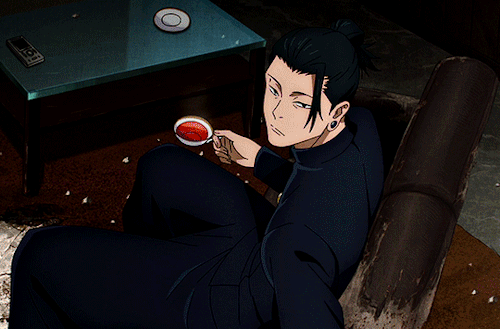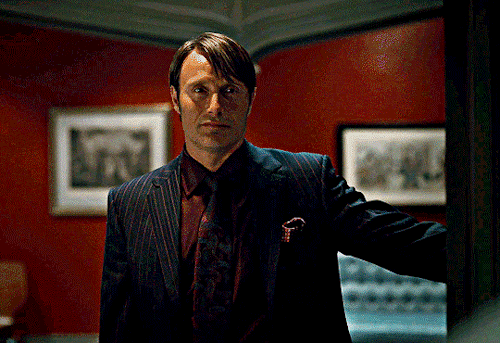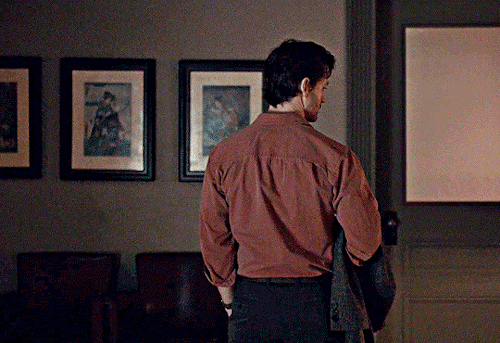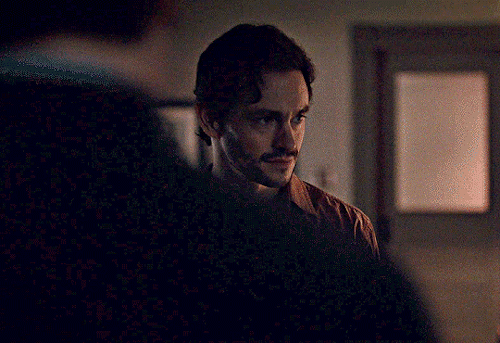House Of Hummingbird (2018)
house of hummingbird (2018)

house of hummingbird is a coming-of-age tale of how an ordinary 14 year-old girl finds herself amidst the relationships she develops with the people around her. in doing so, the film draws on themes big and small, which effectively paints a scarred national psyche and depicts the struggles of normal people as they try to keep apace.
the film can be described as a quiet feminist criticism of gender inequality in a “modern” society. eun-hee and her good friend, ji-soo, are victims of domestic abuse by their older brothers, who have been conditioned by patriarchal notions that empower them to assault their sisters as a means of “reprimanding” them and keeping them in order. when eun-hee and ji-soo are caught for shop theft, ji-soo trembles at the fear of being hit by her brother back at home. when eun-hee bravely tells her parents over dinner, in the first third of the film, that her brother had hit her, her older sister gives her a glance. initially i thought the glance was a glance of surprise and reproach, as if to tell eun-hee to remain silent. but i later realise the glance meant that she herself was a victim of her brother’s abuse, and the glance was a pleasant surprise at her courage. the uncomfortable coexistence of domestic assault and women’s education empowerment (the daughters are enrolled for after-school tuition), points to how society’s claims of modernisation will always ring hollow if women cannot even have basic human rights.
the exhortations of gender inequality are constantly woven in the film. eun-hee’s mother knows that her father is having an extramarital affair, but never explicitly addresses it. nonchalantly asking eun-hee “what was your father wearing when he went out today?” and then checking his closet to see whether he wore his best suit out on a date, eun-hee’s mother is the film’s closest representation of the virtuous traditional asian wife. eun-hee almost walks in her mother’s footsteps - even after seeing her boyfriend flirt with her schoolmate, she takes him back immediately with little questioning. it is only with young-ji’s advice that she needs to not live her life passively that eun-hee starts to assert herself and retaliate. when eun-hee is caught for shoplifting, her father tells him he would rather the shopkeeper send eun-hee to the police station than send some rice cakes over as a “favour”. this is in contrast with her father’s treatment of her brother, offering him money to buy burgers to bribe his schoolmates to vote him as school president.
eun-hee’s relationship with yoo-ri, her junior at school, is less significant as an exploration of sexuality but rather an example of how eun-hee is desperately trying to find true companionship in the people around her. contrasting her friendship with ji-soo (they had a falling out but later reconciled) and her relationship with yoo-ri (yoo-ri fell out of affection and ended the relationship coldly), eun-hee learns that lasting relationships need to be built and are hard to come by. this is why her relationship with young-ji, a teacher at her chinese hakwon (after-school tuition), is extra special.

it is easy to see why teacher young-ji is a figure of admiration for the impressionable eun-hee. young-ji lives a quasi-ascetic and independent lifestyle - she dresses in baggy linen, brews oolong tea in a set of china, and in their first meeting teaches eunhee “out of all the people you’ve met in your life, how many of them really know you?” in hanja. she quits her job at the hakwon out of the blue, because she felt like it; she is on a long break from her undergraduate studies at Seoul University, because she felt like it. of course, this independence is afforded by young-ji’s privilege (her family is well-off). but her non-traditional behaviour teaches eun-hee that there are ways to live without conforming to society. she never talks to eun-hee with condescension, but treats her as a mature equal and genuinely cares for her in ways that eun-hee has never received.
in terms of style, i very much appreciated the sensitive directing of kim bora, which drew the viewer very close to the protagonist. there were very clever tricks deployed. there is a moment when eun-hee is caught shoplifting and the shopkeeper asks for her father’s number, to which she whispers “555-2589″. when eun-hee frightfully presses this number into the public phone after she sees the bridge collapse, kim borrows this memory, as the viewer knows who she is calling before she even says a word.
but the best moments were always personal. as a 24 year-old asian female, even the slightest scenes were poignant. when eun-hee ended off her never-delivered letter to young-ji with “when will my life start to shine?” i just started crying, because i wanted to tell eun-hee that her beloved teacher probably doesn’t know. i don’t know too. when the film ended with eun-hee having found an internal peace, through young-ji’s words of advice, that would help her navigate life’s tribulations - big or small - i started to cry again. we have all struggled to find ourselves, amongst the many expectations placed on us in the different roles we play in society. even though not all of us have a figure like young-ji when they were growing up, the answer to finding life tolerable is always the same.
i love this film - i really, really do. i am eun-hee when i was 12, i am young-ji now. i love this film with a camaraderie that is shared between all asian women who have struggled and are struggling to find their places in society. –10/10
More Posts from Sayaosi and Others


I think one of the reasons this film resonated with many of us (or maybe it’s just me) is the fact that those of us who crave beauty in the most ordinary things want to spend our lives in a similar manner. In a time where hustling is a desired facet of one’s personality, the movie emphasizes a slow life. An enjoyable life. For those of us who want to stop and stare at the beautiful sunset/sunrise and feel content, we are trying to be part of the beauty too, in ways which we are familiar with. Capturing modest pictures that we find beautiful, treating this little life we were gifted so preciously, leaving little space for extravagance, and looking forward to a quiet life; making the most of those small moments we have for ourselves, contemplating the few books and films we’ve consumed in our lifetime, wishing we lived inside a Ghibli movie, treating life with respect.
We watched the repetitive moments earnestly because, like Hirayama, we too loved watching the leaves sway, light scattering through their gaps, and the dappled shadows, even if it was through a screen, a smile creeping onto our faces whenever Hirayama found a sight worth smiling for.
A lifetime spent searching for beautiful things is a beautiful matter in itself. Noticing the countless crevices on tree barks, recognizing the pattern of veins on a leaf when held up against the sun, feeling the warmth of a sunny day — the more you pay attention, the more these moments find you. We try to embrace love and be engulfed by it; sometimes we lose, and other times we win.
I first heard the word ‘Komorebi’ (木漏れ日) in a Radwimps song, and even without knowing its meaning, I found it very beautiful and would sing that word multiple times. Now that I know what it means, I realize that the real beauty is always there; it’s us who change in ways we couldn’t have predicted.





a man of culture 🫖




Barbie (2023) dir. Greta Gerwig
You are allowed to exist alone in public btw. You're allowed to go to the movies alone and go out to eat alone and hang out in a park alone and go for a walk alone and whatever else. It isn't weird or creepy, it doesn't make you lonely or a loser or whatever. You are allowed to just exist as yourself.
reason why frasier is such an underrated show: whenever niles tries something to stop daphne from dating another man (and his flare-ups of jealousy are never done as much as corresponding nice guys on friends or himym) it's not played off as cute or acceptable or something that's justified because he's 'the nice guy who was in love with her all along'. in fact, in most of the examples I can think of, after getting some sense slapped into him niles always ends up supporting daphne in her romantic relationships because he knows it's the right thing to do.
and even though niles is the archetypal 'dogged nice guy' trope, the show makes him actively examine the flawed lens he's regarded daphne through all these years, before he actually gets the girl (at least, in a sexual sense). it's not a case of 'nice guy gets rewarded because he's nice and was a stalker with a crush', it's a case of niles only being able to be in a full and healthy relationship with daphne once he's sorted through those years of longing and come to see her as a fully fledged human being, not just an object of adoration.






Hannibal s1e7 "Sorbet" | s2e7 "Yakimono"
about 160 pages into crime and punishment and i’m obsessed with raskolnikov and razumikhin’s dynamic.
they’re the original black cat and golden retriever. man who hates speaking to people and man who never shuts up. i love them
Detachment (2011)
Stop motion movies are so comforting and joy and a lot of it is insanely underrated and deserves way more attention
-
 sayaosi reblogged this · 7 months ago
sayaosi reblogged this · 7 months ago -
 sayaosi liked this · 7 months ago
sayaosi liked this · 7 months ago -
 progenitorstar liked this · 8 months ago
progenitorstar liked this · 8 months ago -
 rainandcuriosity reblogged this · 1 year ago
rainandcuriosity reblogged this · 1 year ago -
 namjorn liked this · 2 years ago
namjorn liked this · 2 years ago -
 tassouben liked this · 2 years ago
tassouben liked this · 2 years ago -
 honokepi liked this · 2 years ago
honokepi liked this · 2 years ago -
 bohnisikha reblogged this · 3 years ago
bohnisikha reblogged this · 3 years ago -
 bohnisikha liked this · 3 years ago
bohnisikha liked this · 3 years ago -
 sonybuzz42 liked this · 3 years ago
sonybuzz42 liked this · 3 years ago -
 meizhn liked this · 3 years ago
meizhn liked this · 3 years ago -
 corazoncr0mado reblogged this · 3 years ago
corazoncr0mado reblogged this · 3 years ago -
 youngnumbnbroke liked this · 3 years ago
youngnumbnbroke liked this · 3 years ago -
 anatomyofahug liked this · 3 years ago
anatomyofahug liked this · 3 years ago -
 rradiecal reblogged this · 3 years ago
rradiecal reblogged this · 3 years ago -
 visceral12444 reblogged this · 3 years ago
visceral12444 reblogged this · 3 years ago -
 thatwizardofearthsea liked this · 3 years ago
thatwizardofearthsea liked this · 3 years ago -
 photos--only liked this · 3 years ago
photos--only liked this · 3 years ago -
 melssandre liked this · 4 years ago
melssandre liked this · 4 years ago -
 lavendeuhr liked this · 4 years ago
lavendeuhr liked this · 4 years ago -
 watchedbymay liked this · 4 years ago
watchedbymay liked this · 4 years ago -
 lovecase reblogged this · 4 years ago
lovecase reblogged this · 4 years ago -
 completlyinsaneworld liked this · 4 years ago
completlyinsaneworld liked this · 4 years ago -
 bnofee reblogged this · 4 years ago
bnofee reblogged this · 4 years ago -
 bnofee liked this · 4 years ago
bnofee liked this · 4 years ago -
 urjj liked this · 4 years ago
urjj liked this · 4 years ago -
 karthikvernekar liked this · 4 years ago
karthikvernekar liked this · 4 years ago -
 heartisagun liked this · 4 years ago
heartisagun liked this · 4 years ago -
 yuymis liked this · 4 years ago
yuymis liked this · 4 years ago -
 neurotic-nereid liked this · 4 years ago
neurotic-nereid liked this · 4 years ago -
 rainandcuriosity reblogged this · 4 years ago
rainandcuriosity reblogged this · 4 years ago -
 rainandcuriosity liked this · 4 years ago
rainandcuriosity liked this · 4 years ago -
 be0ls4e reblogged this · 4 years ago
be0ls4e reblogged this · 4 years ago -
 be0ls4e liked this · 4 years ago
be0ls4e liked this · 4 years ago -
 cersei-lannister liked this · 4 years ago
cersei-lannister liked this · 4 years ago -
 pingmulan liked this · 4 years ago
pingmulan liked this · 4 years ago -
 pingmulan reblogged this · 4 years ago
pingmulan reblogged this · 4 years ago -
 killingeveok liked this · 4 years ago
killingeveok liked this · 4 years ago -
 spacegaygirl-37 liked this · 4 years ago
spacegaygirl-37 liked this · 4 years ago -
 alls-well-with-the-world liked this · 4 years ago
alls-well-with-the-world liked this · 4 years ago -
 memoryofdream liked this · 4 years ago
memoryofdream liked this · 4 years ago -
 sufjansiemens liked this · 4 years ago
sufjansiemens liked this · 4 years ago

She/her | 22 | 🩷💛🩵-💚🩶🤍🩶💚Blogging about my various interests including TV shows, film, books, video games, current events, and the occasional meme. My letterboxed: https://boxd.it/civFT
123 posts